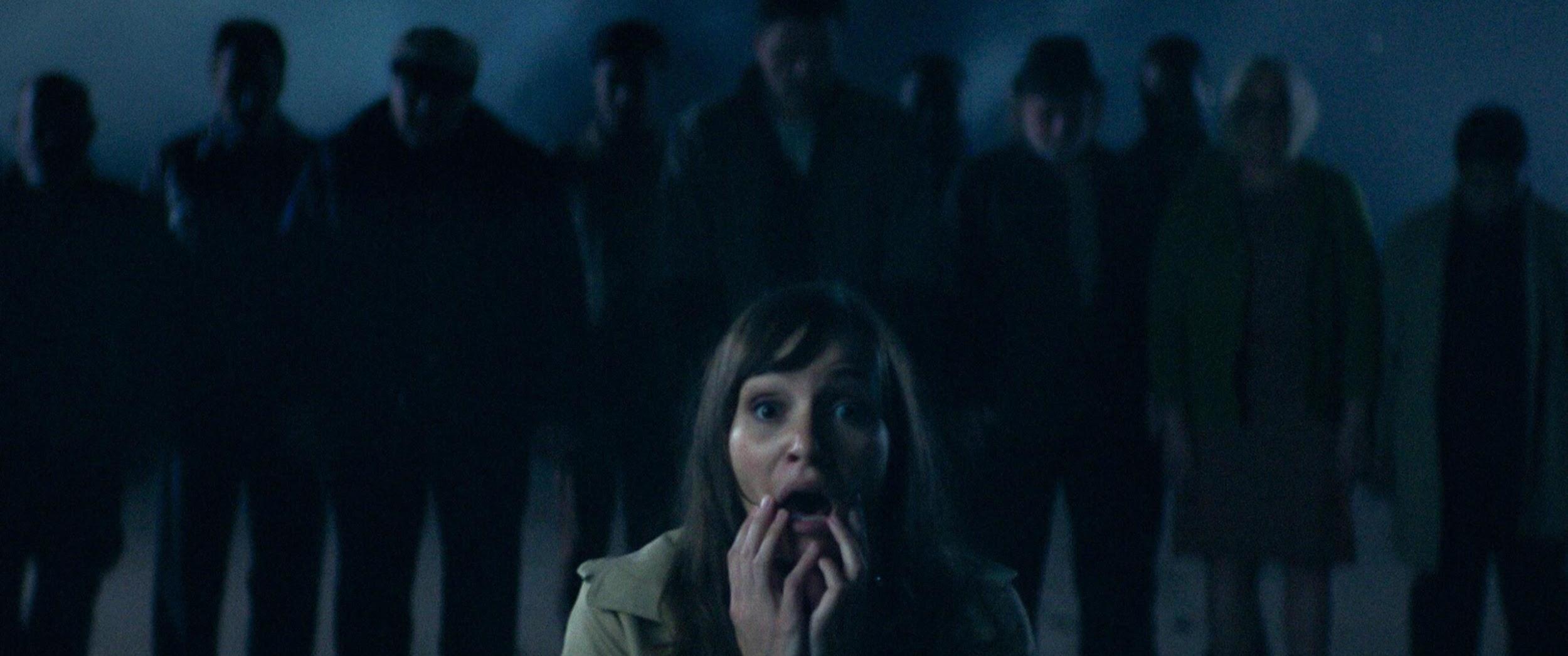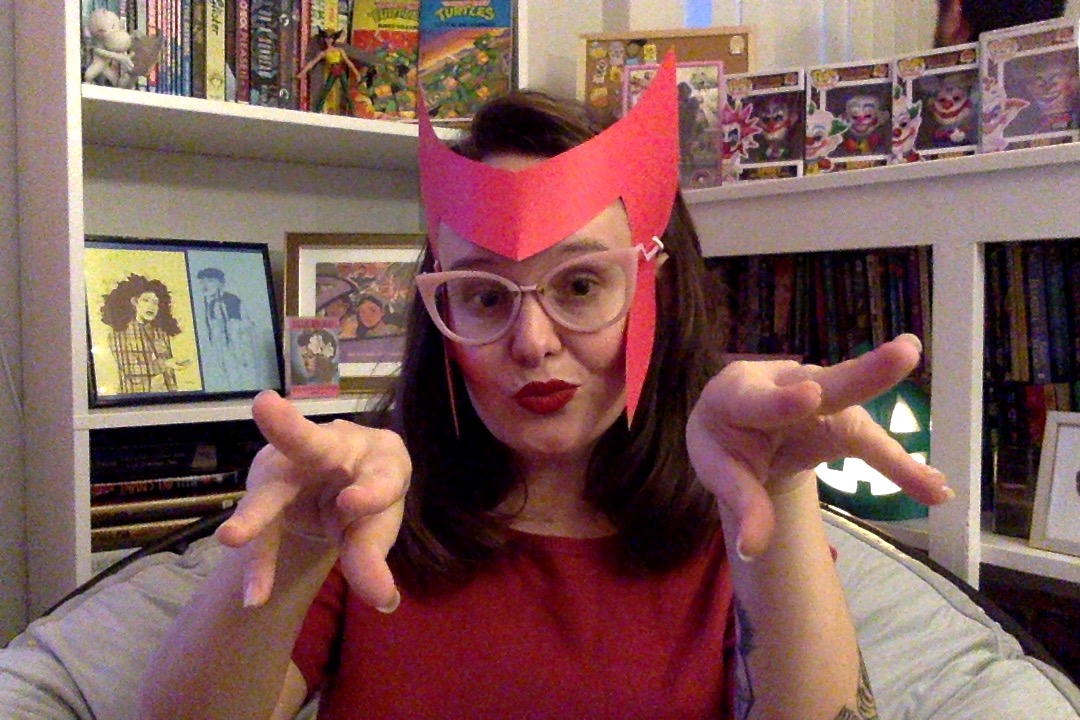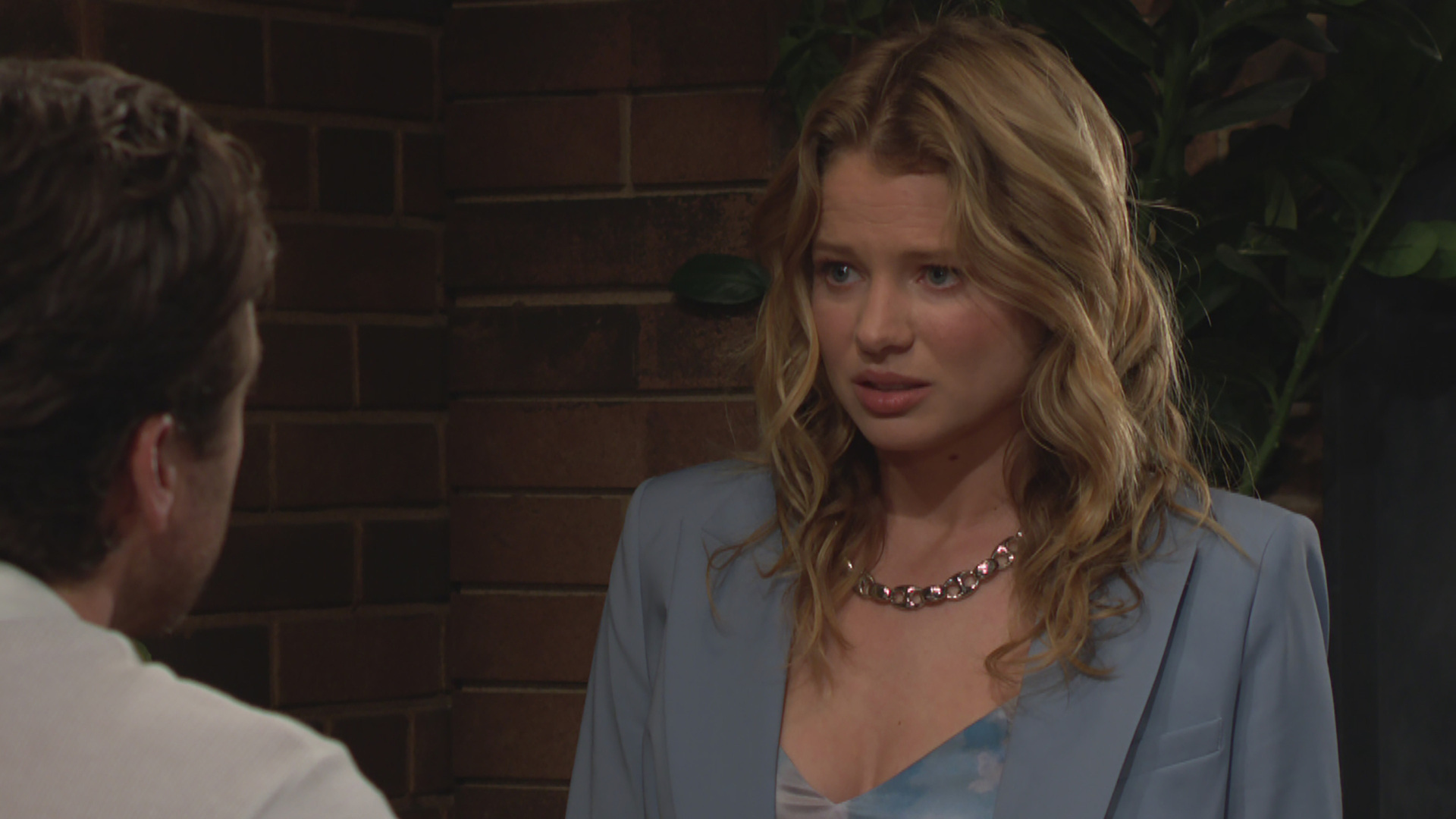What to Watch Verdict
Dementedly dark and drearily delightful, this is an experimentally quiet Folk Horror until a reveal that leaks some of the tension but ramps up the spooky fun.
Pros
- +
🌊 Lovely cinematography
- +
🌊 A cast of killer character actors
- +
🌊 Joe Swanberg plays a great jerk
- +
🌊 Stripped back and sea-swept Folk Horror scares
- +
🌊 Creepy coastal creatures that are effectively eerie
- +
🌊 Impressive use of silence and sound to create legitimate scares
- +
🌊 Jocelin Donahue's Marie is the kind of horror lead you can root for
- +
🌊 Director Mickey Keating builds a near unrelentingly oppressive atmosphere
Cons
- -
🌊 There could be a little more character development, but honestly that's just doesn't feel like the film that Keating was trying to make.
Offseason is part of our SXSW 2021 coverage. You can find all of our reviews here.
"They f**k you up, your mum and dad" and never was that statement truer than in Mickey Keating's bleakly enjoyable and swift Folk Horror Offseason. We begin with a chilling monologue from Melora Walters, who gives one of the film's best if far too brief performances. The strangeness of the sequence sets up the tone and oddness of the film, which works to its advantage at nearly every moment. Walters plays Ava, the late mother of Marie (Jocelin Donahue) who was buried apparently against her wishes on a rural island. When her grave is destroyed, Marie and her reluctant friend George (Joe Swanberg) make a pilgrimage at the behest of an honestly very suspicious and demanding letter.
From the first moment the pair set foot on the island, cinematographer Mac Fisken imbues the tropical locale with a damp beauty that is both enthralling and utterly terrifying. Every sweeping wide shot reminds us just how isolated and alone the pair are. Each tightening frame exists seemingly to make us feel trapped in the ever-shifting forests. Or, even more unsettlingly, in the vast emptiness of the coast. Keating shows a deft hand at building atmosphere, especially as the first 17 minutes of the film have barely a single conversation. Instead, we get fog drenched beaches, misty graveyards, and an ever growing sense of dread. While some could say the script is thin, to me it felt intentional. Each word and conversation feels heavy with meaning, and not one phrase wasted on exposition. It works in the film's favor as the intrigue and mystery at its center would likely feel far less enigamatic with any ounce of over explanation. Rather, we get a reveal that hits just over half way through and still leaves us enough questions to want to follow Marie until the end.
That reveal doesn't necessarily lessen the power of Offseason, but it does set it on a vastly different path from the surreal and sparse first act that works so well. From midway through we descend into an admittedly fun horror romp that feels more akin to the adventurous horror of John Carpenter's The Fog than the anxiety-inducing dread of the setup. But if you settle in and go for the ride, it's a fun one. Marie teams up with a local fisherman (Jeremy Gardner) as she uncovers the secret of the island and the deal her mother made which has led her there. There are jump scares galore, some which are more effective than others but that will keep the tense on their toes and lead to some memorably horrible moments.
Effectively tapping into the liminal nature of being alone in a silent space that is made for many, many bodies and the sounds and life that comes with them, Offseason's best moments come from Keating's skill at crafting an eerie ambiance. But that atmosphere would be nothing without a human heart and that is all Donahue. She's got more depth than a final girl in most 90 minute movies and gets to be angry, clever, brave, and sad. Running around the island in a Columbo coat and shooting men also makes her just really, really cool. The small cast are all equally as talented with Richard Brake making waves as the terrifying keeper of the Bridge who controls who and what can leave the island. Swanberg is scarily believable as Marie's truly useless friend who contradicts and complains when she needs support and belief, and becomes more and more distant both physically and metaphorically as the film moves towards it's terrifying salt-water soaked end.
It's interesting to see cthulhu-style mythology mixed with the trappings of Folk Horror, and for the most part it works. The smart decision to leave most of the horror to our imaginations and impressively minimal use of effects makes the scenes where Keating is explicit with his terrors all the more effective. His best choice, though, is to not get bogged down in the lore of the island of its inhabitants. Instead, this is just an existential kind of horror, one without meaning or motive; a being that needs power and knows how to get it. There's no expository flashbacks about where it comes from or even what it is, and that's a far more fitting route for the film than the alternative. In fact, Offseason uses only one refrain to explain the monster's origin and it's the simple ramblings of Ava that Marie dismissed and only recalls when it's too late. The simplistic ending might not satisfy everyone but it's fitting with the themes of family, home, and seeking out both in their absence.
Overall, Offseason is an effective and fun coastal twist on the contemporary Folk Horror trend.
Rosie Knight is an Eisner-winning journalist and author who's been writing professionally since 2005. Her career has taken her around the world and, although she hails from London, she currently resides in Los Angeles where she writes full time. She began as a professional poet but transitioned into journalism, starting at the Eisner-winning WWAC in 2016. Since then she has written over 1500 articles for digital media sites including What to Watch, Nerdist, IGN, The Hollywood Reporter, Esquire, Den of Geek, DC Comics, /Film, BuzzFeed, and Refinery29. She also writes comics including The Haunted High Tops and Cougar and Cub. When she's not writing she spends far too much time watching horror movies and Hallmark films.












